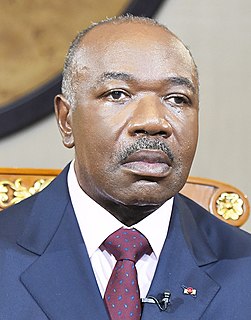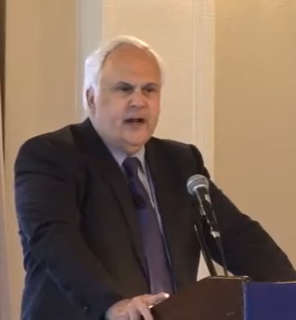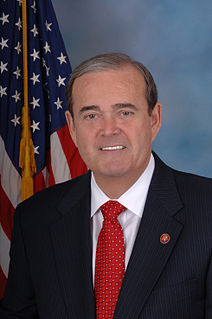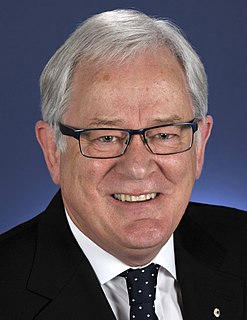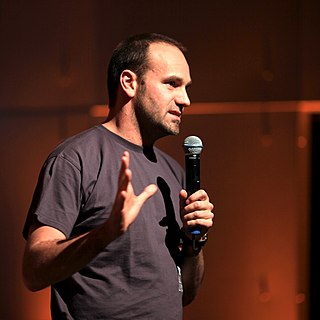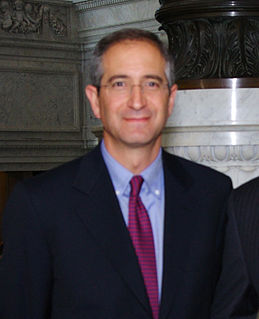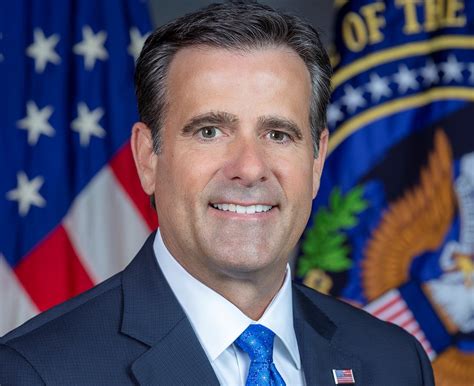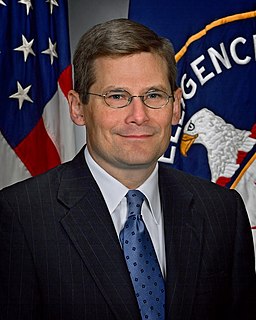Top 50 Telecommunications Quotes & Sayings
Explore popular Telecommunications quotes.
Last updated on April 14, 2025.
Today, in the Twenty-First Century, an age of jet aircraft, personal computers, wireless telecommunications, laser surgery, and incipient space travel, the mentality with which many presumably educated, intelligent people approach matters of economics and business is, however astonishing it may seem, still that of the Dark Ages.
NRTC is pleased with our preliminary agreement and we look forward to working with SES AMERICOM, as it develops the exciting, new IP-PRIME platform, .. NRTC is focused on finding telecommunications solutions that are ideal for rural communities and working with our membership to make those solutions a reality across the country.
It's always been government's role to protect the security of the nation. And cyber-attacks is a security issue, from our perspective. And it's a security issue of particular concern with respect to the nation's core critical infrastructure, the infrastructure everyone relies on, the energy sector, the telecommunications sector, the banking sector.
In abbreviated form, by a kind of symbol, only the most essential information is passed on and passed on only to those concerned. It is more than a metaphor to describe the price system as a kind of machinery for registering change, or a system of telecommunications which enables individual producers to watch merely the movement of a few pointers, as an engineer might watch the hands of a few dials, in order to adjust their activities to changes of which they may never know more than is reflected in the price movement.
I think you might see us growing much deeper into banking. You might see us acquiring companies in the banking area. You might see us acquiring companies in the retail area. I think you might see us acquiring companies in the telecommunications. I think you will see us getting stronger in business intelligence.
In the early 19th century, when the country was transitioning from an agrarian to an industrial economy, we subsidised transportation and created a national bank. In the post-WWII era, we as a federal government made strategic investments in emerging technologies including microelectronics, telecommunications and biotechnology.
When I got out of undergrad, I had a degree in theater and telecommunications. My first job, I was a news reporter for the local stories for NPR. Then I was a country-western DJ. I did data entry for a yearbook company. In my mid-20s I went back to grad school at NYU, and I specialized in playwriting.
All of the threat streams that we have, from all aspects, militarily, economically, supply chain issues, foreign investment, technologically, cyber issues, cyber warfare, 5G, telecommunications - China is in all of those and they are the only country to be in that space and the only country that threatens America supremacy.
China's efforts to dominate 5G telecommunications will only increase Beijing's opportunities to collect intelligence, disrupt communications and threaten user privacy world-wide. I have personally told U.S. allies that using such Chinese-owned technology will severely limit America's ability to share vital intelligence with them.
The problem right now, which I've been pointing out very bluntly to American officials in Washington, is that the U.S. has no economic presence in Afghanistan. The Afghans can't point and say, "Oh, the Americans built that road. They built that telecommunications facility. They built that electricity powerhouse," because nothing has been built so far.
The fact that other countries spy on their own people or spy on each other does not address the fact that the US is engaged in massive, bulk collection to the tune of 70.3 million telecommunications a month in France of perfectly innocent people. That has nothing to do with protecting the United States, and has nothing to do with really gathering any kind of meaningful intelligence on France. It is an overreach ... and I think the other countries are justifiably outraged .... As one of our founders said: Those who choose between liberty and security deserve neither.
I don't. We've had three technological revolutions that have changed the course of human history, all driven by physics. In the first, the industrial revolution, physicists developed Newtonian mechanics and thermodynamics, which gave us the steam engine and machine power. The second technological revolution was the electricity revolution. That gave us radio, television, and telecommunications. Then, physicists developed the laser and the transistor.



